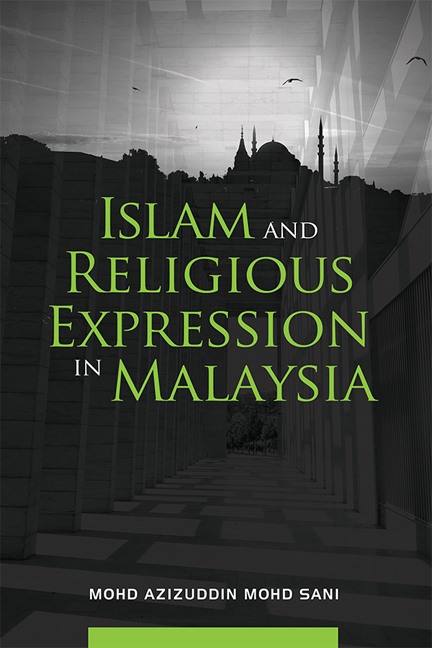Book contents
- Frontmatter
- Cantents
- Foreword
- Preface
- Acknowledgements
- List of Acronyms and Abbreviations
- 1 Freedom of Expression
- 2 Islamization Policy and Islamic Bureaucracy
- 3 Inter-Religious Expression
- 4 Intra-Religious Expression
- 5 Extreme Expression and Radicalization
- 6 New Malaysia under Pakatan Harapan
- 7 Conclusion: Seeking for a Genuine Freedom of Religious Expression
- Bibliography
- Index
- About the Author
6 - New Malaysia under Pakatan Harapan
Published online by Cambridge University Press: 10 November 2020
- Frontmatter
- Cantents
- Foreword
- Preface
- Acknowledgements
- List of Acronyms and Abbreviations
- 1 Freedom of Expression
- 2 Islamization Policy and Islamic Bureaucracy
- 3 Inter-Religious Expression
- 4 Intra-Religious Expression
- 5 Extreme Expression and Radicalization
- 6 New Malaysia under Pakatan Harapan
- 7 Conclusion: Seeking for a Genuine Freedom of Religious Expression
- Bibliography
- Index
- About the Author
Summary
Introduction
According to Prime Minister Najib and his predecessors, Malaysia's culturally diverse population is the main reason additional restrictions have consistently been placed on the population's civil liberties. Thus, under the banner of “national security”, the government limits freedom of speech to safeguard race relations and to ensure national stability. Further, while democracy as a political ideal is still sought after, restrictions are imposed on political processes to protect other fundamental values. Unlike the West, it is not so much the restriction of freedom of speech that is being questioned in Malaysia but the government's domination of the channels of political expression which it uses to weaken the opposition and eliminate criticism. Thus, the main problem in Malaysia lies in the ruling government's willingness to exploit the country's fragile political situation for its own ends by routinely suppressing dissent and criticism from political opposition, non-governmental organizations (NGOs), and the public.
However, Prime Minister Najib has rebuffed such claims, saying, on the contrary, his government is open to criticism. While denouncing opposition leaders and foreigners, whom he blamed for spreading falsehoods and fake news, Najib said that the media has a duty to:
fight to the last this tide of fake and false news that threatens to turn truth into a purely subjective matter, with little relation to the actual facts … The government of Malaysia will be on your side … All we ask in return is the opportunity to remind you to rely in your reporting and sourcing— in whichever country that may be—not on rumours, not on unsourced anonymous quotes, and not on invented propaganda, no matter how persuasively it may be presented, but on verified facts. We have no fear of the facts: for they are undisputed. For the future of newspapers, both in print and online, to be as healthy as we all want and need it to be, I am sure (Channel News Asia 2017).
Najib even argued that “free speech is thriving in Malaysia”, compared to other nations in the region, before going on to blame the false and fake news tyrannizing social media now plaguing the country.
- Type
- Chapter
- Information
- Islam and Religious Expression in Malaysia , pp. 135 - 162Publisher: ISEAS–Yusof Ishak InstitutePrint publication year: 2020

